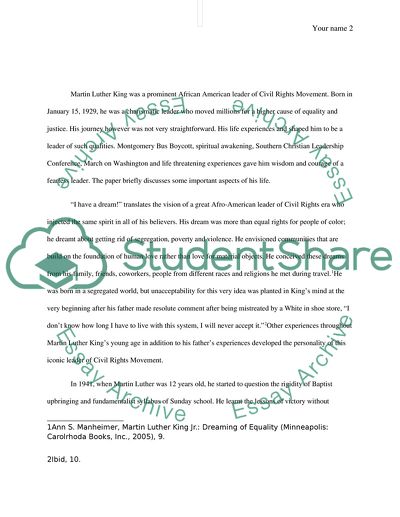Cite this document
(The Civil Rights Era - Martin Luther King Jr. - the Charismatic Leader Research Paper, n.d.)
The Civil Rights Era - Martin Luther King Jr. - the Charismatic Leader Research Paper. Retrieved from https://studentshare.org/history/1740880-the-civil-rights-era
The Civil Rights Era - Martin Luther King Jr. - the Charismatic Leader Research Paper. Retrieved from https://studentshare.org/history/1740880-the-civil-rights-era
(The Civil Rights Era - Martin Luther King Jr. - the Charismatic Leader Research Paper)
The Civil Rights Era - Martin Luther King Jr. - the Charismatic Leader Research Paper. https://studentshare.org/history/1740880-the-civil-rights-era.
The Civil Rights Era - Martin Luther King Jr. - the Charismatic Leader Research Paper. https://studentshare.org/history/1740880-the-civil-rights-era.
“The Civil Rights Era - Martin Luther King Jr. - the Charismatic Leader Research Paper”, n.d. https://studentshare.org/history/1740880-the-civil-rights-era.


